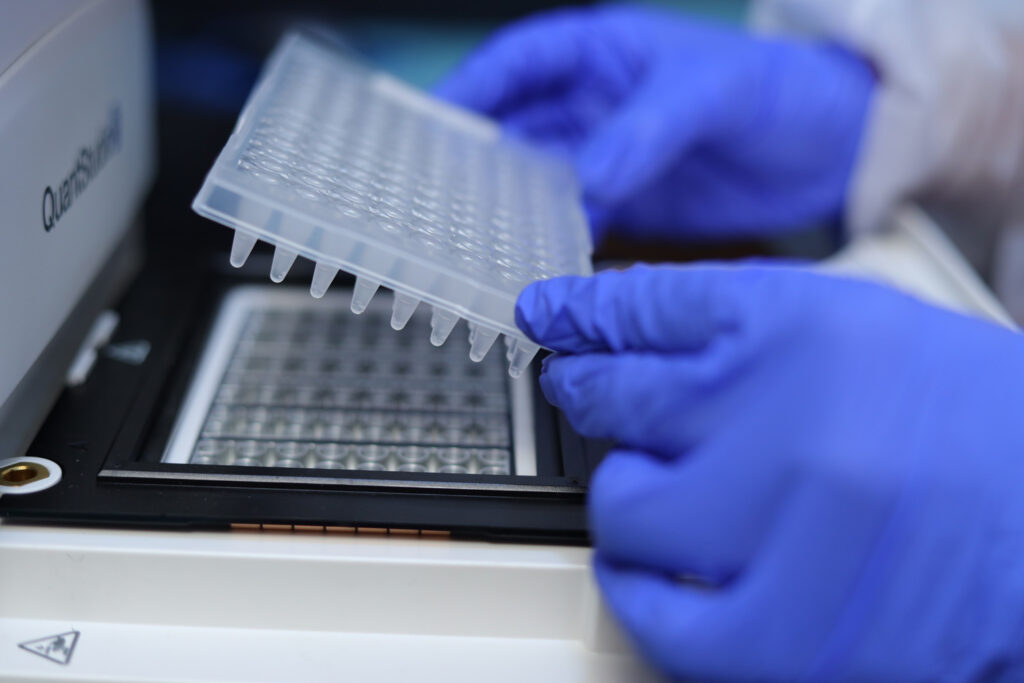What is Adenovirus testing and its benefits in Thane
Adenovirus testing is typically performed to diagnose infections caused by adenoviruses, which can cause respiratory illnesses, conjunctivitis (pink eye), gastrointestinal issues, and other disorders. Adenovirus infections can spread through respiratory droplets, close personal contact, and contact with contaminated surfaces.
In Thane or any other location, you should contact a healthcare provider or a testing facility to get tested for adenovirus or any other infectious disease. They can guide you through the process and provide the necessary information on where and how to get tested.
Sample Collection:
Typically, Adenovirus testing in thane involves collecting a sample from the affected area, such as respiratory secretions (e.g., throat swab, nasal swab), conjunctival swab (for pink eye), or stool sample (for gastrointestinal infections). Different techniques can be used in the laboratory to detect and identify the presence of adenovirus genetic material or specific viral proteins.

Testing Protocols:
The availability and specific testing protocols may vary depending on your location's healthcare system and guidelines. It is advised to consult with healthcare professionals or refer to local health department websites for the most accurate and updated information regarding adenovirus testing in Thane.
Infectious testing:
In Thane, tuberculosis (TB), dengue, and flu testing are typically available through healthcare providers, clinics, hospitals, and diagnostic laboratories. These tests are essential for diagnosing and managing these infectious diseases. However, please note that my information is based on pre-September 2021 knowledge, so it's crucial to consult local healthcare authorities or medical professionals for the most up-to-date and accurate information regarding testing facilities and procedures in Thane.
Tuberculosis (TB) Testing:
tb testing in thane involves different methods, including the tuberculin skin test (TST) or the interferon-gamma release assay (IGRA) blood test. The TST is performed by injecting a small amount of tuberculin under the skin, and the reaction is examined after a couple of days. IGRA blood tests detect the release of interferon-gamma in response to TB-specific antigens. These tests help determine if an individual has been exposed to Mycobacterium tuberculosis, the bacterium causing TB.

Dengue Testing:
Dengue fever is a mosquito-borne viral infection. Dengue testing in thane involves detecting the presence of dengue virus antigens or antibodies in a person's blood. The two primary tests are the reverse transcription-polymerase chain reaction (RT-PCR) and the dengue serology test. Rt Pcr Test in thane directly detects the viral genetic material, while serology tests detect antibodies produced in response to the infection. These tests aid in confirming dengue infection and distinguishing it from other similar viral illnesses.
influenza testing in thane:
Flu testing is crucial for diagnosing influenza, a contagious respiratory illness caused by influenza viruses. The most common test is the rapid influenza diagnostic test (RIDT), which can provide results within 15-30 minutes. RIDT detects viral antigens in respiratory specimens, such as nasal swabs. Another testing method is the nucleic acid amplification test (NAAT), such as PCR, which detects viral genetic material. These tests help identify the presence of the flu virus and determine the specific strain.